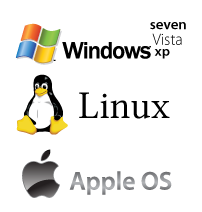With the Fourth of July upon us, it won’t be long before we’re headed to the nearest beach for some much-needed decompression.
Most of us will bring a bit of page-turning light reading. But for those who want a little intellectual heft in their tote, Wired.com asked a few favorite scientists for their summer recommendations.
Feel free to add your own in the comments, and don’t forget the sunblock!
Frans de Waal
Animal cognition expert at Emory University whose most recent work has expanded our understanding of elephant communication.
Books:The Price of Altruism by Oren Harman and Braintrust by Patricia Churchland.
Altruism tells the story of George Price, an American mathematician “who went overboard trying to be a pure altruist himself. He ended up destitute and committed suicide,” said de Waal. “But in this context, the book provides a wealth of information not gathered together before.”
Churchland is an American philosopher with a neuroscience background. In Braintrust, she “explains human morality as built upon a firm foundation of mammalian caring tendencies, which of course fits my thinking about empathy as an ancient characteristic,” said de Waal.
Mark Pagel
Evolutionary linguist at Reading University who has demonstrated that languages evolve like species.
Book:Being Wrong: Adventures in the Margin of Error by Kathryn Schulz.
“This book might say more about me than others but it is a favorite old topic of mine. Schulz reminds us of all the ways that error can creep into our daily observations and why that can matter to decision making and simply to forming opinions on things,” said Pagel. “A refreshing change from the avalanche of simplistic and shrill books that proclaim to be the solution to everything.”
Alexis Rockman
Artist whose depictions of postnatural ecology are so scientifically informed that he belongs in this company.
Book:Lab Coats in Hollywood: Science, Scientists and Cinema by David Kirby.
Kirby’s book “discusses the use and abuse of scientific information in film history,” said Rockman, and contains delightful tales of the trouble that ensues when scientists meet directors.
Luke Rendell
Whale intelligence specialist at St. Andrews University who has helped pioneer the translation of sperm whale communication, showing that the great cetaceans may even have names.
Book:The Wayfinders by Wade Davis.
Davis, a National Geographic explorer-in-residence, “takes us on a mind-blowing tour of the depth and breadth of wisdom to be found in the diversity of human cultures,” said Rendell. “With the rise of globalized mono-culture this book is a vital cry to remember the value of our inherited cultural diversity before it is lost forever.”
Andrew Adamatzky
University of West England computer scientist who explores the mathematical sophistication of slime molds by having the social amoebae re-engineer European highway systems.
Book: Parallel Worlds by Michio Kaku and Mind-Altering and Poisonous Plants by Michael Wink
and Ben-Erik van Wyk.
Read a page of Plants every night and you’ll become a botanical expert, said Adamatzky. And Parallel Worlds “will keep you occupied on the plain or train, and make you think, ‘Why the hell am I here on Earth, which has no future?’”
Image: Anne Adrian/Flickr
See Also:
Authors:


















